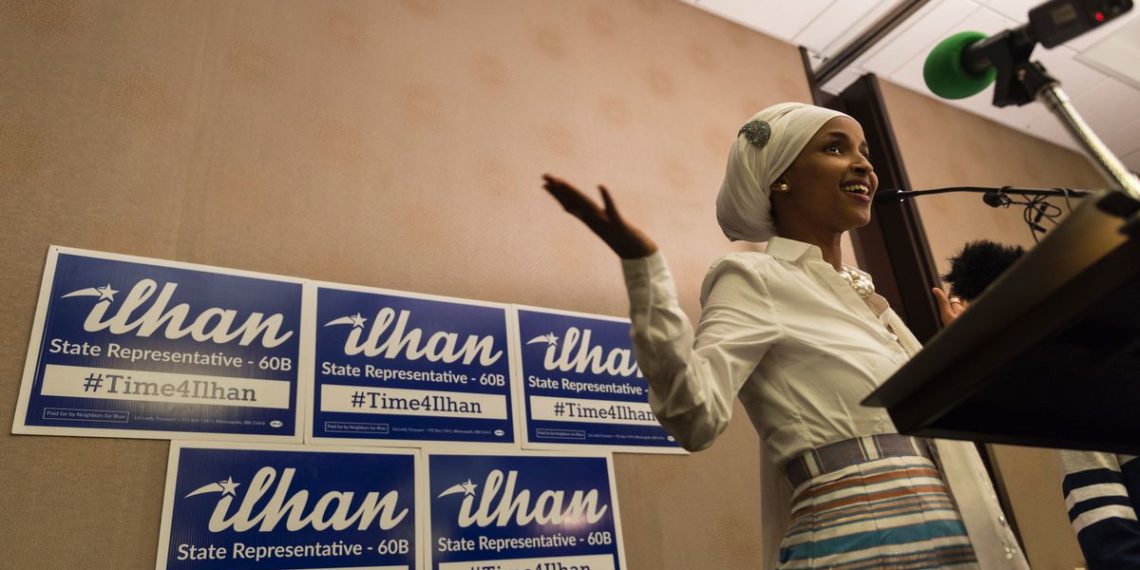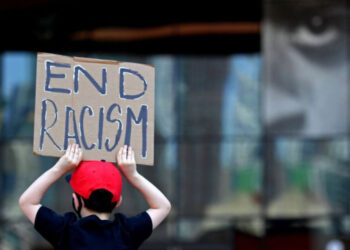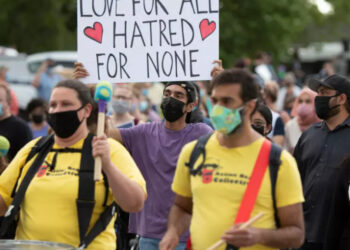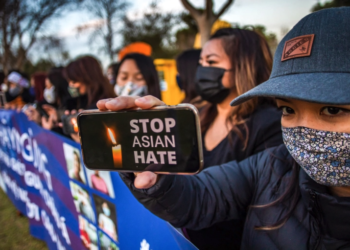“We respect our mothers, our sisters and daughters,” former First Lady Laura Bush said at the outset of the invasion of Afghanistan, some 18 years ago. “Fighting brutality against women and children is not the expression of a specific culture; it is the acceptance of our common humanity – a commitment shared by people of goodwill on every continent. … The fight against terrorism is also a fight for the rights and dignity of women.”
Her speech solidified the West’s rhetorical commitment to rescuing Muslim women from oppression, rationalizing war through the so-called greater goal of emancipating Muslim women.
As a feminist and a human rights activist, I am all for women’s liberation. However, I believe that justifying war under the pretense of women’s salvation is wrong. Research has shown that war disproportionately harms women and children.
Western Media’s Portrayal
Western media often portray Muslim women as oppressed and submissive. They judge the Muslim world on its worst examples of the treatment of women, while the depiction of a female’s treatment in the West is emblematic of an ideal society. This is not to defend some of the abhorrent practices prevalent in the Muslim world, but to highlight that these societies, like all others, have both good and bad traditions.
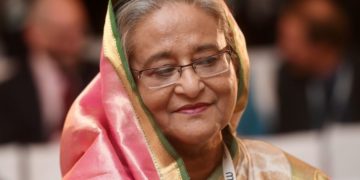
While incidents of violence and discrimination against women are rampant in some parts of the Muslim world, there are far greater examples of Muslim women leaders and change-makers who have shown strength and courage. So far, there have been 13 Muslim female heads of state, including Bangladesh’s Prime Minister Sheikh Hasina, Singapore’s President Halima Yaqub, and Benazir Bhutto, former Prime Minister of Pakistan, the country I grew up in.
Islam is Diverse
The notion that Muslim women somehow need to be rescued implies the patronizing approach that they are inherently incapable of saving themselves. First, Islam does not represent a monolithic culture: it is a religion of 1.8 billion people and is practiced in more 50 countries, each with their own culture and traditions. The definition of a Muslim woman is much more nuanced than the caricature created by western media.
Growing up during Benazir Bhutto’s era – Pakistan’s prime minister between 1988 and 1990 and again from 1993 to 1996 – I felt that women could achieve anything. At home and in the broader society, I had very strong female role models. Women spoke their minds and made their own financial and social decisions. They were doctors, engineers, pilots, and teachers with a strong sense of identity and a strong voice at home and in public.
When I moved to the United States in the early 2000s, I realized that people had a very different view of Muslim women. I remember being at the hospital once and the nurse whispered into my ear, asking where I was from. When I told her that I grew up in Pakistan, her follow-up question was whether I was allowed to go to school and if I was forced to wear a veil back home. I wondered if she would have asked me the same questions if I were not from Pakistan. Probably not.
Defining Muslim Women
So, how do you define a Muslim woman? The way I see it, Muslim women represent different convictions and points of view. Some of us choose to wear hijabs, others are very comfortable in western clothing. We are headstrong, passionate, educated, and often very opinionated. We are also vulnerable and weak, but our vulnerability is not the result of our affiliation with Islam. It is a function of the environment we grew up in, which could be anywhere in the world.
We should remember that patriarchy and misogyny exist in most societies and comes in many forms. The #MeToo movement that originated in the United States is a testament to the fact that mistreatment of women is prevalent all over the world.
I would go a step further and say that even when we talk about persecuted Muslim women, we should present their stories in the context of their strength and resolve. For example, Saudi teenager Rahaf Mohammed al-Qunun (who escaped her family who she says abused her and threatened to kill her) has shown the kind of resilience and courage that many others in a similar situation may lack.
However, at the same time, her story as an Arab Muslim woman does not represent my truth as a South Asian Muslim woman. It is crucial that the West starts recognizing Muslim women as a diverse group, each with their own individual narratives and truths.
West’s Understanding
You may ask, why does the West’s understanding of Muslim women matter? Because for one, this approach of painting all Muslim women with the same brush justifies Western governments’ actions that harm Muslim women instead of helping them.
It also undermines efforts to build bridges, especially for Muslims living in Western societies. Those of us living in the West, who do not fit into the western idea of a Muslim woman, are marginalized. We often find it difficult to carve our space in society. Our reality is seldom celebrated. As a result, we are seen through the lens of the experiences of one section of a diverse group.
It is important to understand that sustainable change can only be achieved from within. Western governments must reconcile with the notion that Muslim women are fully capable of enacting positive change in their communities without outside help.
I am not in any way trying to trivialize the pain of women who have suffered, but it is important that in addition to those stories, the West promotes achievements of Muslim women across the world, such as U.S. Congresswomen Rashida Tlaib and Ilhan Omar.
This is essential for a more realistic depiction of Muslim women. These two Congresswomen have opened new doors for other women of color and minorities in the U.S. and around the globe, but most importantly, they have redefined what it means to be a Muslim woman. It is high time everyone else did it too.
Disclaimer: The views and opinions expressed here are those of the author and do not necessarily reflect the editorial position of The Globe Post.

